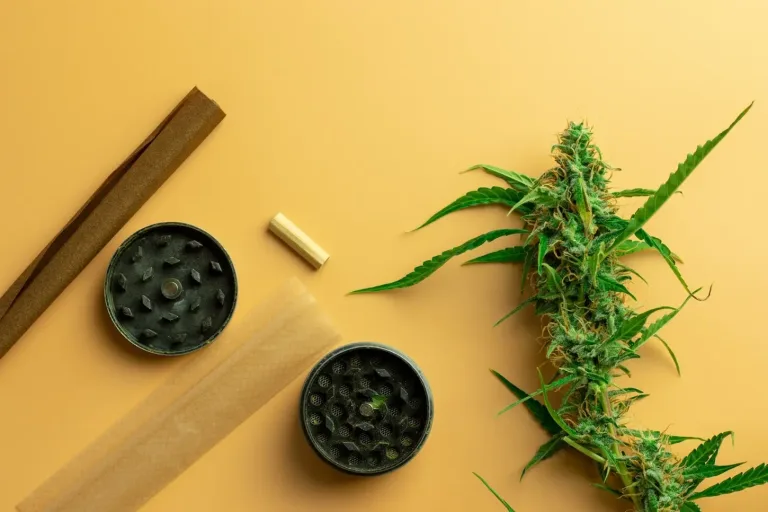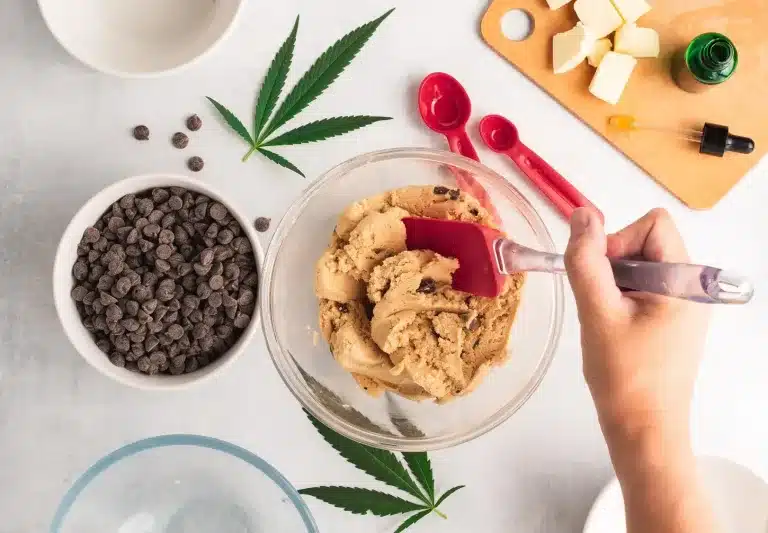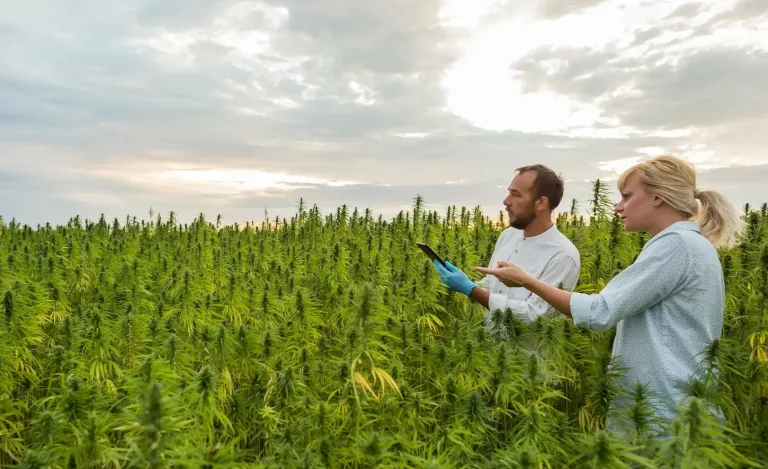A cannabis hangover refers to the unpleasant after-effects that some users experience the day after consuming cannabis, especially in high doses. The most common symptoms include:
- Headaches
- Dry mouth
- Mild nausea
- Anxiety
- Paranoia
- Fatigue
- Grogginess
- Impaired cognition or “brain fog”
These effects are caused by the accumulation of THC metabolites in the body after heavy or long-term use. While cannabis is not known to cause traditional “hangovers” like alcohol, its lingering side effects can be equally as disruptive to productivity and wellbeing.
Studies estimate that 1 in 9 cannabis consumers will experience a “weed hangover” (a slang term) at some point, with new marijuana users and those consuming cannabis edibles or high-potency concentrates at the highest risk. If you’ve ever woken up with a pounding headache, queasy stomach, or mental fog after a night of heavy marijuana use, you’ve experienced the dreaded “weed hangover.”
Let’s go over some causes, preventative measures, and treatments so you can be ready the next time you use cannabis.
Getting Rid of Cannabis Hangover Effects

The unpleasant symptoms and lingering effects of a cannabis hangover can put a damper on your day, but luckily there are many remedies to help you recover from the adverse effects quickly:
- Drink water and electrolytes. Dehydration is a common cause of many of the symptoms of a cannabis hangover. To rehydrate, drink plenty of water and electrolyte-replacement drinks like Gatorade.
- Take an OTC pain reliever. Over-the-counter pain relievers like ibuprofen (Advil) or acetaminophen (Tylenol) can relieve headaches and body aches.
- Use eye drops. Lubricating eye drops can provide relief for bloodshot, dry eyes.
- Take anti-nausea medication. Over-the-counter nausea medications like Dramamine can relieve nausea.
- Brew ginger tea. Ginger root tea is a natural remedy that can help to ease nausea and settle the stomach.
- Eat foods rich in potassium. Potassium is an important electrolyte that can be depleted after either drinking alcohol or cannabis use. Eating foods rich in potassium, such as bananas, avocados, yogurt, and oatmeal, can help to replenish your levels.
- Take antacids. If you’re experiencing an upset stomach, antacids like Tums or Pepto-Bismol can help to calm your stomach.
- Massage temples. Gently massaging your temples can help to temporarily relieve headaches.
- Nap and rest. Getting enough sleep is essential for overall health and well-being. If you’re feeling tired after a marijuana hangover, take a nap or rest in bed for a while.
If you find that you’re experiencing cannabis hangovers on a regular basis, it’s important to talk to your doctor. They can help you determine if you have any underlying medical conditions that may be contributing to your symptoms.
Causes of Cannabis-Related Negative Consequences

Cannabis hangover can be caused by a variety of factors, including high-potency products, inexperience, dehydration, delivery method, insufficient food, and pre-existing conditions. Here are some more details about each cause:
- High-potency products: Products with a high THC content are more likely to cause a hangover, especially cannabis edibles. This is because THC is the psychoactive compound in cannabis that produces the “high” feeling. Edibles can also cause a hangover because they are metabolized differently than smoked or vaped cannabis.
- Inexperience: People with a low tolerance for cannabis are more likely to experience hangovers. This is because their bodies are not used to processing THC. First-time and new cannabis users are at an increased risk of a hangover.
- Dehydration: Not drinking enough water before, during, and after cannabis use can lead to dehydration. This can worsen the symptoms of a hangover, such as headache, fatigue, and dry mouth.
- Smoking method: Smoking cannabis can irritate the lungs and throat more than vaping. This can also lead to dehydration, which can worsen the symptoms of a hangover.
- Insufficient food: Cannabis products increase metabolism. If you don’t eat enough food before using cannabis, your blood sugar levels may drop, which can cause symptoms such as fatigue, dizziness, and headache.
- Pre-existing conditions: People with certain pre-existing conditions, such as anxiety, headache disorders, and stomach issues, may be more likely to experience cannabis hangovers. This is because these conditions can be exacerbated by THC.
Preventing and Avoiding a Cannabis Hangover

To reduce your chances of suffering through a cannabis hangover experience, be sure to follow these tips when using cannabis.
- Start low, go slow. If you’re new to cannabis products, start with a low dose of THC and wait to feel the effects before using more. This will help you to find the right amount for you and avoid overdoing it.
- Stay hydrated. Dehydration can worsen the symptoms of a marijuana hangover, so it’s important to drink plenty of water before, during, and after using cannabis.
- Eat before and after. Eating a full meal before using cannabis can help to maintain your blood sugar levels and reduce the risk of a hangover. Eating something after using cannabis can also help to settle your stomach and relieve any nausea.
- Avoid smoking methods. Marijuana smoking can irritate your lungs and throat, which can contribute to a hangover. If you’re concerned about a hangover, try vaping, edibles, or tinctures instead.
- Choose indica strains. Indica strains of cannabis are generally less likely to cause a hangover than sativa strains. If you’re sensitive to THC, choose an indica strain with a lower THC content.
- Monitor your dosage. It’s important to carefully control your dosage of cannabis, especially if you’re new to the drug. Microdosing or using a measured inhale device can help you control your dosage and avoid overdoing it.
- Avoid mixing substances. Mixing cannabis with alcohol, medications, or other drugs can increase your risk of a hangover and other negative side effects. It’s best to avoid mixing substances when using cannabis.
- Optimize your surroundings. Create a comfortable and familiar environment when using cannabis. This can help to reduce anxiety and stress, which can contribute to a hangover.
- Use CBD products. CBD can counteract some of the side effects of THC, including hangovers. CBD is also non-intoxicating, so you can use it on its own or in combination with THC.
By following these tips, you can help prevent and avoid the negative effects of cannabis hangovers. However, it’s important to note that everyone reacts to cannabis differently, so what works for one person may not work for another.
What Are the Signs of Cannabis Use Disorder0?

If you find yourself frequently experiencing adverse symptoms of cannabis use, it may be a sign of a problematic relationship with the drug.
Some signs of cannabis use disorder include:
- Needing more cannabis to get the same high (tolerance).
- Withdrawal symptoms when stopping use – symptoms may include anxiety, irritability, sleep problems, decreased appetite, restlessness.
- Neglecting major responsibilities at work, school, or home in order to use cannabis.
- Unsuccessful attempts to cut back or control cannabis use.
- Spending a lot of time getting, using, or recovering from cannabis.
- Cravings and urges to use cannabis.
- Continuing to use cannabis despite negative interpersonal or social consequences.
- Giving up important social, occupational, or recreational activities because of cannabis use.
Experiencing three or more of these symptoms over a 12-month period could indicate the development of a cannabis use disorder. This may require professional treatment such as therapy, counseling, or a rehabilitation program to help you regain control over your cannabis use. Speaking with a doctor is an important first step in getting help.
Conclusion
Experiencing a pounding headache, mild nausea, and foggy thinking after a night of heavy cannabis use is no fun. While marijuana hangovers share some similarities with alcohol hangovers, they have their own unique causes and remedies. The best way to avoid a hangover is to
- pace yourself,
- stay hydrated,
- eat enough food,
- and stick to reasonable doses.
Avoiding cannabis hangovers starts with pacing yourself and staying hydrated. If you wake up with an unpleasant “weedover”, remedies like rest and ginger tea can help. But frequent hangovers may signal an underlying issue, so consult a doctor. Don’t let a hangover hamper your life. The experts at Windy City Cannabis can offer tailored guidance and access to quality products so you can use cannabis hangover-free. Join today!
Sign Up for Our Rewards Program
Find your perfect cannabis products at Windy City Cannabis. Whether you’re a medical or recreational user, we’ve got you covered.




